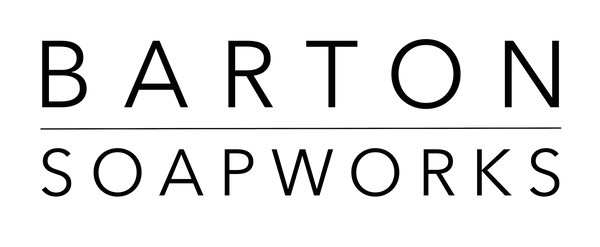Why I Choose Essential Oils Over Synthetic Fragrance — Backed by a Toxicologist’s Insight
Share

I’ve always made naturally fragranced soaps — not because it was in vogue, but because it felt like the right thing to do.
From the start, I avoided synthetic fragrances for one simple reason: I didn’t know what was in them. That single word — “fragrance” — could mean almost anything: a handful of safe ingredients, or a mix of chemicals I’d never choose to use. And I couldn’t sell something to someone, or use it on my own children, without knowing what was inside.
That’s why I chose essential oils. They were traceable, familiar, and honest. But for a long time, my choice was based on instinct, community learning, and what felt responsible — not on scientific validation.
Then I watched an interview with Dr Ivon Burkart, a toxicologist and mother, on The Diary of a CEO with Steven Bartlett, and it brought everything home in a different way. Not because it changed my view, but because it explained why my instincts had been right all along.
I already knew that fragrance companies didn’t have to list the ingredients behind that single word on a label — that’s one of the reasons I’d never used them. Hearing Dr Burkart explain what’s often hidden there, in clear, simple language, really hit me. She described how phthalates, parabens, and other endocrine disruptors can interfere with hormones, affect fertility, and even influence development in children. Hearing that from a scientist, in plain speak, made it all feel concrete — no longer a vague concern from blog posts or maker forums, but grounded in real toxicology.
I’ve heard lots of people talk about this online — convincingly, even passionately — but I’m not a scientist. I can’t read or interpret research papers; I rely on what filters through from others — from makers, writers, and people trying their best to live more naturally.
And honestly, I’ve grown up trusting household brands — Marks & Spencer, John Lewis, IKEA — the ones that feel familiar and safe. You see them in Christmas adverts, selling comfort and family life. They wouldn’t really sell something harmful, would they? How bad could a scented candle or a fabric softener actually be?
Even baby products aren’t always what we imagine them to be. The words “gentle,” “for sensitive skin,” or “baby-safe” sound reassuring, but many shampoos, bubble baths, and wipes still list “fragrance” on the label without saying what that actually means. It’s not about panic — it’s just surprising once you notice it. Especially when these are the products we trust most around our children.
I’ve never made a product specifically for babies or children, partly because I’ve always been a little afraid to. They’re so delicate and precious — and I assumed there were much stricter safety rules around anything made for them. It’s been eye-opening to realise that, in many cases, those protections aren’t nearly as strong as you’d hope.
These issues go beyond what I make — they’re about the choices I make throughout my home, for my kids as much as for myself.
Essential oils aren’t perfect — they’re powerful, natural materials that need care and understanding. I’m not a scientist; I can’t tell you every molecule that makes them up. But I can choose transparency where it’s available, and I can listen to the people who do understand the chemistry. And if someone like Dr Burkart — a leading toxicologist — says essential oils are the safer, more sensible choice, then that’s what I’m going to stand by.
Humans have always been drawn to scent. It’s big business for a reason: smell connects to memory, comfort, and emotion. As children it’s scented stickers and lip balms (for me, it was The Body Shop), and as adults it’s candles, lotions, and perfumes. We’re not all going to go cold turkey from fragrance — but we can make safer, simpler choices about the scents we live with.
That interview didn’t change my craft — it clarified it. It helped me put words and evidence behind choices I’d already made quietly for years. And it reminded me why I’m so drawn to working with natural scent — it’s personal, transparent, and full of life.
We don’t have to give up scent altogether to live more safely. Humans are wired for it — for comfort, memory, emotion. What we can do is choose our scents with care: fewer secrets, more honesty.
Because fragrance should be a pleasure, not a hidden danger.
That’s part of why I’ve been building Aromacraft, a free blend generator for natural scent lovers. It’s a small step toward reclaiming scent — helping people create their own blends at home, safely and simply, using ingredients they can trust.
